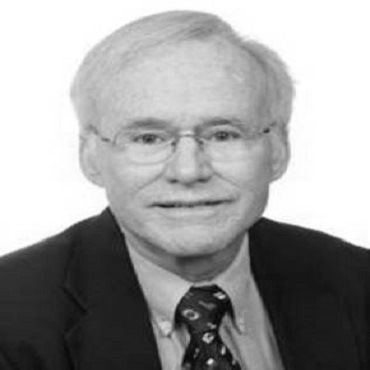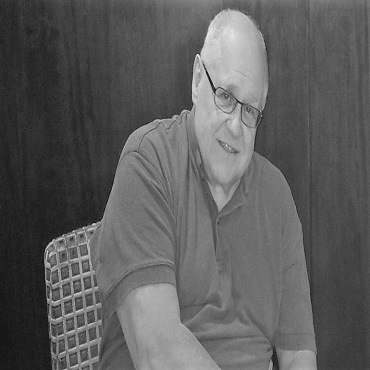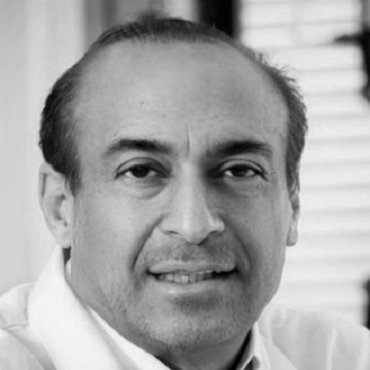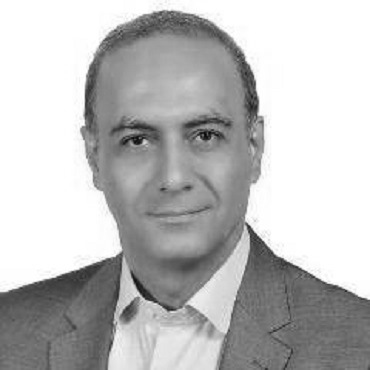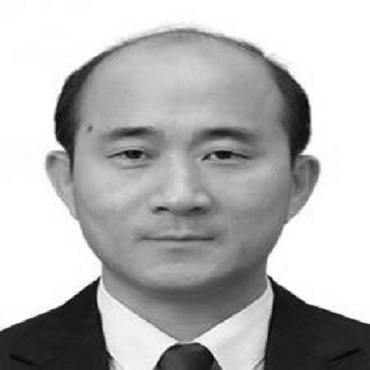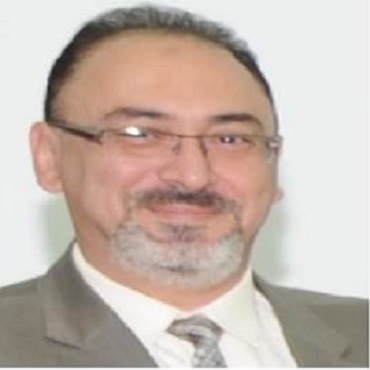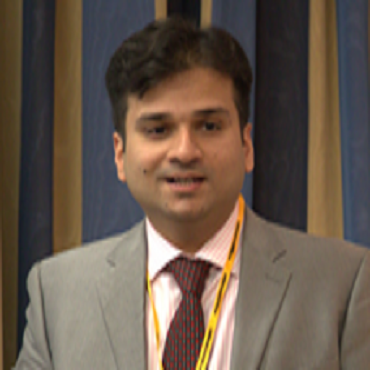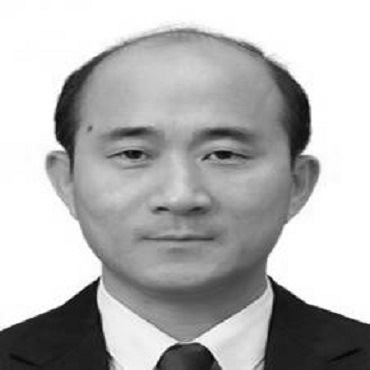
Pharmacology 2019

Theme: Research Advances in Pharmacological Field
14th International Conference on Pharmacology and Toxicology will be held during July 18-19, 2019 at Zurich, Switzerland. Pharmacology 2019 conference will focus on the theme Research Advances in Pharmacological Field. Pharmacology Conference focuses on the importance to understand drugs and how they can affect human physiology. It is with the better understanding of Pharmacology one can know the right dosage and dosage forms of drugs. More research in pharmacology deals with identifying and responding to drug interactions and its side effects along with its mechanism of action, its therapeutic index and thereby treat accordingly. More intensive study with the interaction between drug and its therapeutic effect helps to identify the properties of ideal drugs.
Join your peers around the world focused on learning about Pharmacology and related advances, which is your single best opportunity to reach the largest assemblage of participants from the Pharmacology community, conduct demonstrations, distribute information, meet with current and potential professionals, make a splash with a new research works, and receive name recognition at this 2-day event. World-renowned speakers, the most recent research advances and the newest updates in Pharmacology are hallmarks of this conference.
Target Audience:
- Students, Scientists, Researchers, and Faculty of Pharmaceutical Universities
- Medical Colleges, Researchers from Pharmaceutical Companies, Pharmacy Associations and Societies
- Business Entrepreneurs, Training Institutes, Software developing companies
- Manufacturing Medical Devices Companies, CRO and Data Management Companies.
Session-1: Advances in Pharmacological Research
Liposomes, nanoparticles and Nanoscale drug delivery systems are the current new advances in Pharmaceutical Field.
The pharmaceutical industry is directly impacted by the research conducted with prescription drugs, vaccines, and OTC drugs being manufactured based on findings from the study of life sciences. Clinical trials are conducted to ensure that products being developed are tested on how well they work on individuals affected by the diseases or conditions they are created to treat.
Pharmacology Conference | Pharmacology Meetings | Pharmacology Symposia | Pharmacology Workshop | Pharmaceutical Conferences | July Conferences | Zurich Conferences
Related Societies:
Societies in USA: Argentine Society for Experimental Pharmacology, American Academy of Veterinary Pharmacology and Therapeutics
Societies in Europe: Czech Neuropsychopharmacological Society, Danish Society for Clinical Pharmacology, Danish Society for Pharmacology and Toxicology
Societies in Asia: Japanese Pharmacological Society, Japanese Society of Clinical Pharmacology and Therapeutics, Korean Society of Pharmacology
Session-2: Clinical Pharmacology and Receptor Theory
Clinical Pharmacology connects the gap between practice and laboratory science. The fore-most objective is to push the security of prescription, maximise the drug effects and minimise the aspect effects. It's vital that there be an association with pharmacists mean in areas of drug data, medication safety and different aspects of pharmacy follow associated with clinical Pharmacology. In fact, in countries like USA, Netherlands, and France, pharmacists train to become clinical pharmacologists. Therefore, clinical pharmacology isn't specific to medicine.
Clinical pharmacologists sometimes have a rigorous medical and scientific coaching that permits them to guage proof and manufacture new information through well-designed studies. Clinical pharmacologists should have access to enough outpatients for clinical care, teaching and education, and analysis in addition as be supervised by medical specialists. Their responsibilities to patients embrace, however don't seem to be restricted to, analyzing adverse drug effects, medicine, and pharmacology as well as generative pharmacology, cardiovascular risks, perioperative drug management and psychopharmacology.
Pharmacology Conference | Pharmacology Meetings | Pharmacology Symposia | Pharmacology Workshop | Pharmaceutical Conferences | July Conferences | Zurich Conferences
Related Societies:
Societies in USA: Argentine Society for Experimental Pharmacology, American Academy of Veterinary Pharmacology and Therapeutics
Societies in Europe: Czech Neuropsychopharmacological Society, Danish Society for Clinical Pharmacology, Danish Society for Pharmacology and Toxicology
Societies in Asia: Japanese Pharmacological Society, Japanese Society of Clinical Pharmacology and Therapeutics, Korean Society of Pharmacology
Session-3: Food and Chemical Toxicology
Food and Chemical Toxicology (FCT), its an study of poisonous and harmful substances. Toxicity Testing allows us to identify the toxicity of chemicals we use and gives information about the potency of their effects. As well as being true for industrial chemicals this is also true of pharmaceuticals and the normal products formed by plants, bacteria and fungi. Knowing whether a chemical can cause cancer, allergic reactions or abnormalities in unborn children is important to human health, and the process of discovering this information is known as assessment of hazard. This process is distinct from assessing risk which determines whether it is likely to actually cause harm in a given situation.
Pharmacology Conference | Pharmacology Meetings | Pharmacology Symposia | Pharmacology Workshop | Pharmaceutical Conferences | July Conferences | Zurich Conferences
Related Societies:
Societies in USA: Argentine Society for Experimental Pharmacology, American Academy of Veterinary Pharmacology and Therapeutics
Societies in Europe: Czech Neuropsychopharmacological Society, Danish Society for Clinical Pharmacology, Danish Society for Pharmacology and Toxicology
Societies in Asia: Japanese Pharmacological Society, Japanese Society of Clinical Pharmacology and Therapeutics, Korean Society of Pharmacology
Session-4: Drug Screening and Discovery
In the fields of medicine, biotechnology and pharmacology, drug discovery is the process by which new candidate medications are discovered. In 2016, the total global drug discovery market was valued around 35.2 billion U.S. dollars. It is estimated that the market will grow to some 71 billion dollars by 2025.
Modern drug discovery involves the identification of screening hits, medicinal chemistry and optimization of those hits to increase the affinity, selectivity (to reduce the potential of side effects), efficacy/potency, metabolic stability (to increase the half-life), and oral bioavailability. Once a compound that fulfils all of these requirements has been identified, it will begin the process of drug development prior to clinical trials. One or more of these steps may, but not necessarily, involve computer-aided drug design. Modern drug discovery is thus usually a capital-intensive process that involves large investments by pharmaceutical industry corporations as well as national governments.
Pharmacology Conference | Pharmacology Meetings | Pharmacology Symposia | Pharmacology Workshop | Pharmaceutical Conferences | July Conferences | Zurich Conferences
Related Societies:
Societies in USA: Argentine Society for Experimental Pharmacology, American Academy of Veterinary Pharmacology and Therapeutics
Societies in Europe: Czech Neuropsychopharmacological Society, Danish Society for Clinical Pharmacology, Danish Society for Pharmacology and Toxicology
Societies in Asia: Japanese Pharmacological Society, Japanese Society of Clinical Pharmacology and Therapeutics, Korean Society of Pharmacology
Session-5: Environmental Pharmacology
Environmental pharmacology is a new and emerging specialty of pharmacology. It involves the study of gene-environment interaction, toxin-environment interaction and drug- environment interaction. Environmental pharmacology entails the study of environmental science, medicine, ecology, genetics and chemistry. The impact of pharmaceuticals on the ecosystem has significance public health implications. The demand for more pharmaceuticals relative to world’s population growth may place the public at risk though the destruction of species. The entry of chemicals and drugs into the aquatic ecosystem is of a serious concern and empirical evidences are making these concerns more compelling.
Pharmacology Conference | Pharmacology Meetings | Pharmacology Symposia | Pharmacology Workshop | Pharmaceutical Conferences | July Conferences | Zurich Conferences
Related Societies:
Societies in USA: Argentine Society for Experimental Pharmacology, American Academy of Veterinary Pharmacology and Therapeutics
Societies in Europe: Czech Neuropsychopharmacological Society, Danish Society for Clinical Pharmacology, Danish Society for Pharmacology and Toxicology
Societies in Asia: Japanese Pharmacological Society, Japanese Society of Clinical Pharmacology and Therapeutics, Korean Society of Pharmacology
Session-6: Toxicology
The in vitro toxicology market is expected to reach USD 8.74 Billion by 2022 from an estimated USD 6.34 Billion in 2017, at a CAGR of 6.6%. The key factors driving the growth of this market include opposition to animal testing, growing demand for in vitro technology in the European market, new and promising technologies, and increasing R&D expenditure to detect toxicity at an early stage.
Pharmacology Conference | Pharmacology Meetings | Pharmacology Symposia | Pharmacology Workshop | Pharmaceutical Conferences | July Conferences | Zurich Conferences
Related Societies:
Societies in USA: Argentine Society for Experimental Pharmacology, American Academy of Veterinary Pharmacology and Therapeutics
Societies in Europe: Czech Neuropsychopharmacological Society, Danish Society for Clinical Pharmacology, Danish Society for Pharmacology and Toxicology
Societies in Asia: Japanese Pharmacological Society, Japanese Society of Clinical Pharmacology and Therapeutics, Korean Society of Pharmacology
Session-7: Pharmacogenetics and Pharmacogenomics
Recent advances in DNA repair are DNA interstrand cross-links (ICLs) are lesions caused by a variety of endogenous metabolites, ecological exposures, and cancer chemotherapeutic agents that have two reactive groups. The general feature of these diverse lesions is that two nucleotides on opposite strands are joined covalently. Mutagenicity and carcinogenicity are clearly correlated. The somatic mutation theory of cancer holds that these agents cause cancer by causing the mutation of somatic cells. A unique feature of inter-strand cross-links repair is that both strands of DNA must be incised to completely remove the lesion. Drug dosing guidelines accomplished in sequential steps to prevent creating multiple double-strand breaks. Understanding the specificity of mutagens in bacteria has led to the direct implication of certain environmental mutagens in the causation of human cancers.
Pharmacology Conference | Pharmacology Meetings | Pharmacology Symposia | Pharmacology Workshop | Pharmaceutical Conferences | July Conferences | Zurich Conferences
Related Societies:
Societies in USA: Argentine Society for Experimental Pharmacology, American Academy of Veterinary Pharmacology and Therapeutics
Societies in Europe: Czech Neuropsychopharmacological Society, Danish Society for Clinical Pharmacology, Danish Society for Pharmacology and Toxicology
Societies in Asia: Japanese Pharmacological Society, Japanese Society of Clinical Pharmacology and Therapeutics, Korean Society of Pharmacology
Session-8: Applied Pharmacology
Applied pharmacology is the study of how drugs affect body. Drugs can be used to both maintain a healthy lifestyle and treat or cure disease. Pharmacology deals with the basis, therapeutics uses of drugs, physiological action and properties of action. Applied pharmacology helps to measure the data obtained from the clinical studies and can correlate it with the clinical processes. It also provides explanation for different drugs having connected with the pharmacological action. It gives clarifications about drug interactions and the action of various drugs on the many organs in the body when they are in diseased state with side effects contradictions. Applied pharmacology makes it possible not only to explain to the doctor the action of drugs in the human body, but also in evaluating the efficacy of drugs in a particular disease condition.
Pharmacology Conference | Pharmacology Meetings | Pharmacology Symposia | Pharmacology Workshop | Pharmaceutical Conferences | July Conferences | Zurich Conferences
Related Societies:
Societies in USA: Argentine Society for Experimental Pharmacology, American Academy of Veterinary Pharmacology and Therapeutics
Societies in Europe: Czech Neuropsychopharmacological Society, Danish Society for Clinical Pharmacology, Danish Society for Pharmacology and Toxicology
Societies in Asia: Japanese Pharmacological Society, Japanese Society of Clinical Pharmacology and Therapeutics, Korean Society of Pharmacology
Session-9: Pharmacokinetics and Pharmacodynamics
Pharmacokinetic and pharmacodynamic parameters become important because of the association between host drug concentrations, microorganism eradication, and resistance. Since long scientific advances allowed scientists to come together with the study of physiological effects with biological effects.
The Pharmaceutical industry's long successful strategy of placing big bets on a few molecules, promoting them heavily and turning them into blockbusters worked well for many years, but its R&D productivity has now plummeted and the environment’s changing.
Pharmacology Conference | Pharmacology Meetings | Pharmacology Symposia | Pharmacology Workshop | Pharmaceutical Conferences | July Conferences | Zurich Conferences
Related Societies:
Societies in USA: Argentine Society for Experimental Pharmacology, American Academy of Veterinary Pharmacology and Therapeutics
Societies in Europe: Czech Neuropsychopharmacological Society, Danish Society for Clinical Pharmacology, Danish Society for Pharmacology and Toxicology
Societies in Asia: Japanese Pharmacological Society, Japanese Society of Clinical Pharmacology and Therapeutics, Korean Society of Pharmacology
Scope and Importance:
Pharmaceutical drugs are subject to a large number of laws and regulations that deal with patenting, testing, safety, efficacy and marketing and affect the size and growth rates of the market. Together with the high R&D costs involved in creating new drug solutions, these can act as barriers to entry for small companies. However, pharmaceutical companies produce both generic and branded drugs. Generics, which are copies of patent-expired drugs, are opportunities for smaller entrants. They are taking an increasing share of the market, particularly in developing economies, where governments are encouraging their production in order to make lower-price treatments more widely available.
Global Business and Research Value:
The global pharmaceuticals market was worth $934.8 billion in 2017 and will reach $1170 billion in 2021, growing at 5.8%, according to a recent pharma market research report by The Business Research Company. This is an accelerated pace compared to 5.2% for the years before 2017, but is slower than the other two large healthcare segments, medical equipment and healthcare services. Healthcare as a whole is growing at over 7% year on year. The factors that affect the pharmaceutical market size include disease prevalence, drug affordability, consumer attitudes, government policies and some supply-side factors.
Current and on-going changes in political, economic, social, technological, legal and environmental factors are influencing growth in the healthcare market, where drugs play an important part. The following factors are all boosting healthcare market growth:
- Reduced taxes and lowered drug prices in the USA
- GDP growth of over 6% in China and India
- Widespread population aging and sedentary lifestyles leading to increased chronic disease prevalence
- Industrialized data services in R&D enabling the use of clinical trial data in trial simulations
- Lowered regulatory barriers for new drugs in the USA
- High urban pollution levels increasing the incidence of conditions like asthma
Pharma Universities Worldwide:
USA
Northeastern University
Ohio State University-Main Campus
University of Washington-Seattle Campus
Purdue University-Main Campus
University of Minnesota
University at Buffalo
New Jersey Institute of Technology
University of Iowa
Duquesne University
Europe:
Freie University of Berlin, Germany
Braunschweig University of Technology, Germany
Goethe University Frankfurt, Germany
Joseph Fourier University, France
University of Bologna, Italy
Aston University, United Kingdom
University of Barcelona, Spain
Humboldt University of Berlin, Germany
University of Hamburg, Germany
Asia :
Charles Sturt University, Australia
Pusan National University, Singapore
Fukuyama University, Japan
Gulf Medical University, United Arab Emirates
University of Tokyo, Japan
National University of Singapore, Singapore
Nanyang Technological University, Singapore
United Arab Emirates University, UAE
Indian Institute of Technology Roorkee, India
Fujita Health University, Japan
University of Hong Kong, Hong Kong
Pharma Societies Worldwide:
USA:
American Association of Colleges of Pharmacy
American Pharmacists Association
American Society for Pharmacy Law
American Society of Consultant Pharmacists
American Society of Health-System Pharmacists
Professional Compounding Centers of America
American College of Clinical Pharmacy
American Academy of Veterinary Pharmacology and Therapeutics
American Board of Clinical Pharmacology
Europe:
European Association for Clinical Pharmacology and Therapeutics
European Association for Veterinary Pharmacology and Toxicology
European Behavioural Pharmacology Society
European College of Neuropsychopharmacology
European Society of Biochemical Pharmacology
European Society of Developmental, Perinatal and Paediatric Pharmacology
European Society of Ethnopharmacology
Federation of European Pharmacological Societies
European Generic Medicines Association
Asia:
Asia Pacific Federation of Pharmacologists
Australian Physiological and Pharmacological Society
Hong Kong Pharmacology Society
Indian Pharmacological Society
Indonesia Veterinary Pharmacy and Pharmacology Association
Israel Society for Physiology and Pharmacology
Japanese Pharmacological Society
Global Research Centres:
3M Pharmaceuticals
Abbott Laboratories
AbbVie
Acadia Pharmaceuticals
Acorda Therapeutics
Actavis
Actelion
Global Funding Bodies
Andrew W. Mellon Foundation
Boehringer Ingelheim Fonds
Centre for Disease Control (CDC)
Commonwealth Fund
Community of Science
Ford Foundation
Gates (Bill and Melinda) Foundation
Izumi Foundation
National Science Foundation
Future Scope:
Drug efficacy, pharmacology and toxicity are important parameters in the selection of compounds for development. Different in vitro and in vivo screens for drug discovery are recommended as a streamlined process for evaluating new compounds on the path from drug discovery to development.
Conclusion:
Integrative biology/physiology, chemical biology/biological chemistry, Pharmacogenetics, experimental medicine and systems biology are more focussed disciplines. Pharmacology helps us to understand from molecular level how drugs are working. The essence of pharmacology is trying to understand how to make drugs precisely effective, safe and also establish how they work.
References:
https://blog.marketresearch.com/the-growing-pharmaceuticals-market-expert-forecasts-and-analysis
http://www.ijpsonline.com/aboutus.html
https://www.nature.com/articles/nrd1416
https://www.ncbi.nlm.nih.gov/pmc/articles/PMC1760753/
- Advances in Pharmacological Research
- Clinical Pharmacology and Receptor Theory
- Food and Chemical Toxicology
- Drug Screening and Discovery
- Environmental Pharmacology
- Toxicology
- Pharmacogenetics and Pharmacogenomics
- Applied Pharmacology
- Pharmacokinetics and Pharmacodynamics
- Journal of Pharmaceutical Sciences & Emerging Drugs
12 Organizing Committee Members
4 Renowned Speakers
Renu Mishra
Sri Sathya Sai College for Women
India
Ryong Nam Kim
Seoul National University Bio-MAX/N-BIO
South Korea
Julio Cesar Vega
Laboratorio Pablo Cassara SRL
Argentina
Saeed Taheri
Shahid Beheshti University of Medical Science
Iran

